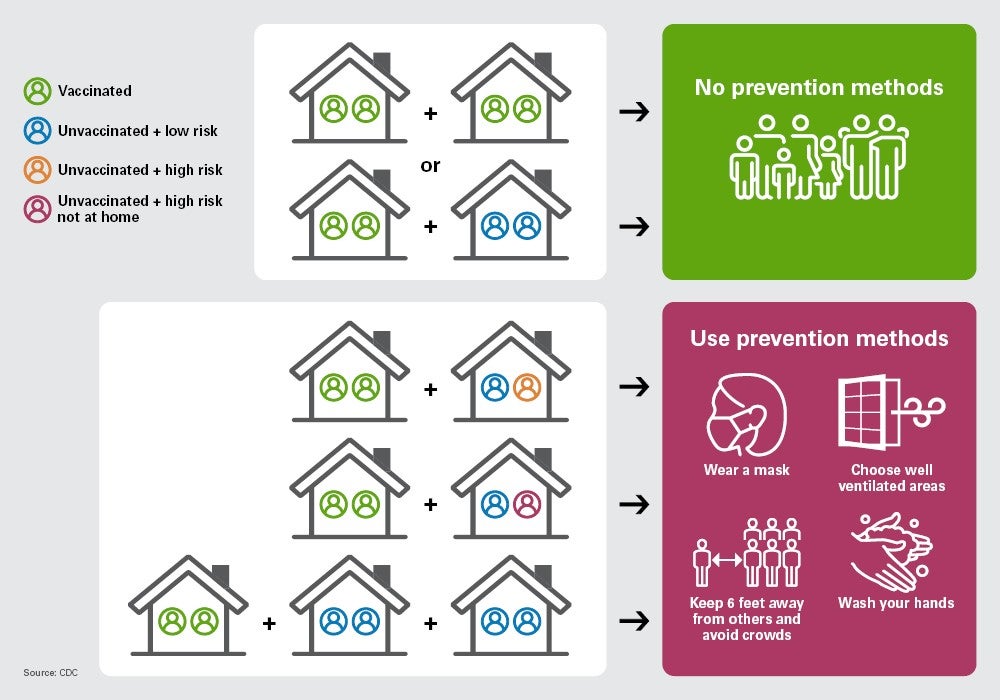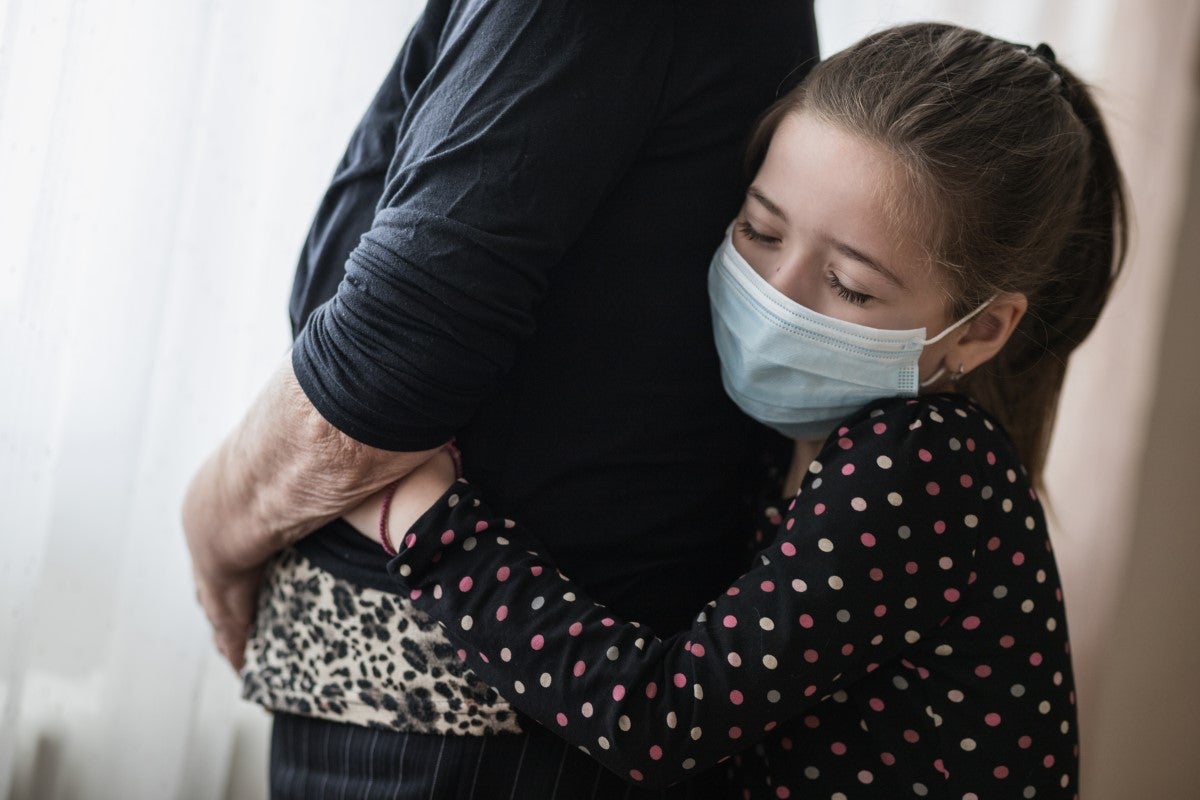Millions of Americans are receiving the COVID-19 vaccines every day. In fact, they’re reaching people faster than most anticipated. Many counties and states have already opened vaccine appointments to anyone age16 and older, which means millions of people at the highest risk for the virus have already been vaccinated or will be soon.
We told you about the vaccines and how they work in a previous post, but now we wanted to share some new guidance from the Centers for Disease Control and Prevention (CDC) about what we can do after we’re fully vaccinated. You are considered "fully vaccinated" two weeks after receiving the second dose in a two-dose series (Moderna or Pfizer), or two weeks after receiving a single-dose vaccine (Janssen (Johnson & Johnson)). Here’s what the CDC suggests:
Visiting Others
If you’re fully vaccinated, you can visit with other fully vaccinated people indoors without masks or physical distancing. You can also visit with unvaccinated people from a single household who are at low risk for severe COVID-19.
Quarantining
If you’re fully vaccinated and do not work in healthcare, the CDC says you do not need to quarantine or test following a known exposure as long as you have no COVID-19 symptoms.
Taking Precautions
Even if you’re fully vaccinated the CDC suggests still taking precautions in public, including wearing a mask and keeping physical distance. These measures should also be taken if you’re visiting with unvaccinated people who are at increased risk for severe COVID-19 or when visiting with unvaccinated people from multiple households. You should also continue to avoid medium- and large-sized in-person gatherings.
Testing
Even after you’ve been vaccinated, you should still get tested if you’re experiencing COVID-19 symptoms. Vaccination is extremely effective, but it’s still possible to contract COVID-19 after receiving a vaccine thanks to virus variants and other circumstances.
Traveling
The CDC still recommends delaying travel and staying home, even if you’re fully vaccinated, to protect yourself and others from COVID-19. Travel increases your chance of getting and spreading the virus and makes you more susceptible to virus variants that may not currently be in the area where you live.
Socializing
As you can see in this chart, socializing after vaccination is okay with certain groups. You should still plan to use some preventative measures, though, to lower the risk of getting or spreading the virus.

Reminders
That’s a lot of back-to-normal activity, which is exciting to say the least. But it’s not a green light. We still need to continue using all the tools we’ve been using to protect ourselves and others. That includes wearing masks (covering both the nose and mouth), physical distancing (staying at least 6 feet away from others in public) and washing our hands (often, with soap and water or hand sanitizer). All will help reduce your chance of being exposed to the virus and spreading it to others.
It’s also important to remember to be on the lookout for symptoms and seek treatment when needed. The most common symptoms of COVID-19 continue to be fever, cough, headache, fatigue, muscle or body aches, loss of taste or smell, sore throat, nausea and diarrhea. If you notice symptoms, stay home except to get medical care, contact your healthcare provider and get tested.
Mass distribution of the COVID-19 vaccines is the best way to bring this pandemic to an end, and we’re on our way. If you’ve already been vaccinated, congratulations. If you haven’t, be sure to do so as soon as you get the opportunity. And after you do, keep protecting the people around you by doing the things that have kept us safe so far. That way we can all start seeing, going, and doing again.

